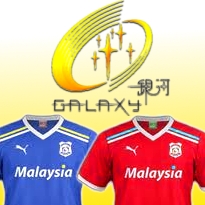 Asian casino operator Galaxy Entertainment Group (GEG), which runs the Galaxy Macau and StarWorld gaming joints, reported an all-time record EBITDA of HK$2.2b (US $283m) in Q1 2012 on revenues of HK$13.2b (+130% over 2011). The result marks GEG’s 14th consecutive quarter of earnings growth and triple the HK$712m in the same quarter last year. The not-yet-one-year-old Galaxy Macau accounted for HK$1.3b of the earnings total, as mass market revenue rose 16% quarter-on-quarter. Mass market table games hold was 27.1%, while the VIP market hold was 3% and electronic gaming was 6.9%. StarWorld contributed HK$852m (+28%) to Group earnings, but while revenues were up 11% over 2011, they fell 10% quarter-on-quarter, which the company blamed on a 2.7% VIP win rate (compared to 3.1% the previous quarter). Mass gaming revenue rose 56% on a hold of 23.2% (up from 18.1% in 2011). Electronic gaming hold was 6.9%. The company did not disclose profit figures.
Asian casino operator Galaxy Entertainment Group (GEG), which runs the Galaxy Macau and StarWorld gaming joints, reported an all-time record EBITDA of HK$2.2b (US $283m) in Q1 2012 on revenues of HK$13.2b (+130% over 2011). The result marks GEG’s 14th consecutive quarter of earnings growth and triple the HK$712m in the same quarter last year. The not-yet-one-year-old Galaxy Macau accounted for HK$1.3b of the earnings total, as mass market revenue rose 16% quarter-on-quarter. Mass market table games hold was 27.1%, while the VIP market hold was 3% and electronic gaming was 6.9%. StarWorld contributed HK$852m (+28%) to Group earnings, but while revenues were up 11% over 2011, they fell 10% quarter-on-quarter, which the company blamed on a 2.7% VIP win rate (compared to 3.1% the previous quarter). Mass gaming revenue rose 56% on a hold of 23.2% (up from 18.1% in 2011). Electronic gaming hold was 6.9%. The company did not disclose profit figures.
If you still doubt that the world is tilting eastward, consider the following: Las Vegas Sands’ Asian offshoot, Sands China, will be added to the Hong Kong exchange’s Hang Seng index of companies on June 4. Perhaps even more striking was the rumor that Vincent Tan, the Malaysian tycoon who counts Asian sports betting operations among his holdings, was planning to change the uniform colors of the Cardiff City football club. Tan, who took ownership of the club in 2010, was reportedly considering a change from the club’s traditional blue kit to red, which is considered a ‘luckier’ color in Asia. There were also plans to replace the bluebird logo with a dragon, which might have appealed to both Asian and Welsh tastes, and would definitely have boosted jersey sales across Asia.
Whatever the plans may have been, club chairman Dato Chan Tien Ghee issued an open letter to supporters on Thursday, claiming any such changes have been scuppered due to “vociferous opposition.” However, Ghee maintained that the changes could have provided “a springboard for the successful commercialization and promotion of the club and its brand, driving international revenues and allowing us to fund transfers and success locally.” Ghee went on to say that the jersey revamp was “intended as a positive change to allow us to adapt and embrace the future.” (Left unsaid: an Asian future.)
Ominously, Ghee warned fans that the backlash had prompted the club’s Asian owners to rethink a proposed £100m investment and development strategy. Ghee reminded fans that the club “simply cannot continue to function and exist in its current state … losing large amounts of money … acquiring more and more debt.” Ghee said the club faced “bold and real world decisions” if it was to survive. “As romantic and simplistic a notion as it may seem, maintaining our current course without growth or change, is not, and cannot be, an option.”
Much as England had to adjust their 19th century mindset to reflect the 20th century collapse of the once omnipotent British Empire, it appears football fans are going to have to shed preconceived notions about traditions, especially when someone from one of England’s former colonies is paying to keep the lights on.